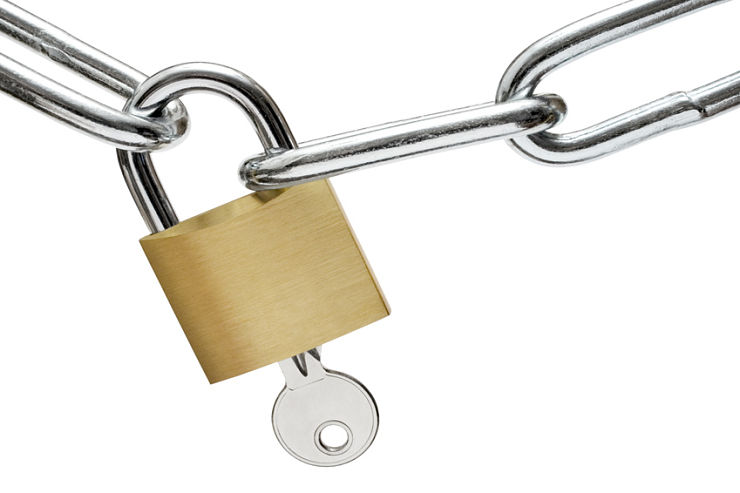Equifax and the CFPB have teamed up, sort of, to focus attention on consumer rights when dealing with huge consumer businesses. Equifax, alongside Wells Fargo of the millions of unauthorized bank accounts, want to limit their customers’ access to the legal system. Their boilerplate agreements prohibit customers banding together in class actions, and lock individual customers out of court, funneling them into arbitration.
The Consumer Financial Protection Bureau thinks that’s unfair to the public. Guest author Donald Petersen is going to take it from there, explaining how the fine print in the agreements you’ve signed limits your rights.
Without the rule you can be denied your day in court
The Consumer Financial Protection Bureau (“CFPB”) just published a rule prohibiting lenders from including arbitration agreements which would prohibit consumers from filing or participating in a class action lawsuit in a court.
Lenders can still include an arbitration agreement, but the agreement can not prohibit consumers from filing a class action lawsuit.
The United States Senate has until November 13, 2017, to repeal the CFPB’s arbitration rule under the Congressional Review Act (“CRA”).
So far, scandals at Wells Fargo and Equifax have drawn public awareness to the need for access to class actions. It did not help the industry when the CFPB’s rule was ready for a vote only a day or two after Equifax finally disclosed that credit records belonging to 143,000,000 Americans were hacked.
During the CFPB’s town hall meetings, attorneys who represent financial services clients insisted that their clients would not provide for any arbitration at all. Please, throw me (and my consumer clients) in that briar patch!
What rights are affected by arbitration?
Lenders and service providers include arbitration agreements in order to deny the consumer their day in court.
Although corporations promote arbitration as more efficient and equally just as the courts, neither is true.
Furthermore, arbitration is conducted privately so scams such as Wells Fargo often continue for years before a government agency enforces the law without the yoke of arbitration.
In many consumer fraud cases, the documents that the consumer needs to prove the case are in the defendant’s exclusive possession and control. Arbitration forums do not have subpoena powers to require non-parties to produce documents, information and witnesses. The arbitration tribunals are often unwilling or unable to require the defendant to produce discovery.
Arbitration tribunals and their arbitrators are not governed by the rules affecting judicial conduct or any similar laws.
One of the “big three” arbitration tribunals — the National Arbitration Forum (“NAF”) — processed hundreds of thousands of arbitration demands for a publicly traded debt buyer and several large banks and issued final decisions in favor of creditors almost 100% of the time.
After many years of operation, the Attorney General of the State of Minnesota finally pulled the curtain and discovered that a private equity firm owned the NAF and effectively owned the law firm whose information system was integrated with the NAF’s. The NAF agreed to stop processing consumer disputes and several credit card issuers discontinued using the NAF now that the fraud was exposed. None of the judgments against consumers were vacated however.
Although one large arbitration forum, Judicial Alternative Mediation Services (“JAMS”), uses only retired judges to hear arbitration disputes, most arbitration forums are not very selective. Consumers could end up with a used car lot manager deciding their dispute against another local used car lot and the courts would enforce the arbitrator’s decision.
What are arbitration agreements?
By agreeing to arbitrate, consumers often forfeit their right to go to court, access to a jury trial, right to file or participate in a class action, and are not assured that the person who arbitrates the case is impartial. Agreements to arbitrate are often included in non-negotiable “boilerplate” contracts.
The arbitrators know that the creditors hired the arbitration forum that the case is before and have a strong bias to reward the “frequent fliers” with favorable decisions.
As a practical matter, arbitration results are almost virtually non-reviewable by the Courts. The courts rubber stamp the arbitrator’s award which transforms the award into a judgment which can be enforced according to state law.
How common are arbitration agreements?
Pre-dispute arbitration agreements are commonplace in credit card agreements, car loan agreements, mortgages and other consumer finance contracts.
They are also inserted in automobile sales/ financing contracts, employment contracts, physician services’, nursing homes, and even cable service contracts
What types of disputes are forced into arbitration?
Cases which must be heard in arbitration depend upon the language in the arbitration agreement. Occasionally, lenders draft arbitration agreements which cover only certain types of disputes, such as disagreements arising from the mortgage. Courts sometimes rule these clauses are not broad enough to include unrelated consumer protection claims such as the Telephone Consumer Protection Act (“TCPA”) , Fair Debt Collection Practices Act (“FDCPA”), Real Estate Servicing Procedures Act (“RESPA”), and other state and federal consumer protection laws.
Unfortunately, most arbitration clauses are drafted very broadly and would include such claims.
Any limit to who can compel arbitration?
Arbitration agreements are interpreted as a contract so the wording of the agreement is important.
Depending upon how the arbitration agreement identifies who can enforce the agreement and how the agreement defines that term, debt collectors may or may not have the right to stand in the shoes of the original creditor and enforce the arbitration agreement.
How are class actions related to arbitration?
Corporate America especially seeks a mechanism to deny consumers the ability to group their claims in class action lawsuits.
Class actions are often the only economically practicable way to pursue small amounts of damages when large numbers of consumers have been taken advantage of. In most of these cases, very few (if any) people will be able to pursue their claims individually.
What about contracts I’ve already signed?
Many existing contracts include agreements to arbitrate. Assuming at least some of the credit card banks delete their arbitration clauses during their periodic mouse print updates, some may not.
Contracts with fixed payment terms including mortgages and loans secured by motor vehicles will likely remain subject to arbitration. Contracts predating March 19, 2018 will likely contain arbitration agreements which also prohibit class actions.
Such agreements would remain valid.
Are arbitration agreements really enforceable?
Yes, agreements to arbitrate are usually enforceable.
Moreover, many (if not most) courts will require the parties to allow an arbitrator — not the court — to rule whether the parties agreed to arbitrate a dispute unless the disagreement arises on the face of the arbitration agreement itself.
For example, sometimes the arbitration agreement is limited to disputes with a specific lender and does not include assignees such as debt collectors or even some affiliates.
In other cases, the types of disputes that the parties agreed to arbitrate is narrowly tailored and does not include certain consumer claims such as the Fair Debt Collection Practices Act (“FDCPA”), the Telephone Consumer Protection Act of 1991 (“TCPA”), or similar consumer finance contracts.
Does bankruptcy change my rights?
Some bankruptcy practitioners have defeated creditors’ motions to compel arbitration based upon the Bankruptcy Code as explained in this article from Bankruptcy Law Network. But, this is not the general rule.
So, in most cases, consumer finance contracts will probably continue to include agreements to arbitrate which are enforceable.
Can I avoid arbitration entirely?
In transactions not involving consumer credit, arbitration clauses continue to be a burden upon ordinary Americans.
When shopping for consumer credit, credit unions are worthwhile to consider. Very few credit unions force members to agree to arbitration rather than going to court. (A 2015 study by the CFPB concluded that approximately 3% of credit unions required arbitration for credit card accounts and 8% for checking accounts.)
So, if you want to avoid arbitration entirely, this is another good reason to contact your local credit union.
 ABOUT THE AUTHOR Donald E. Petersen is an Orlando, Florida trial attorney who represents consumers in individual and class action lawsuits arising from violations of federal and state consumer protection laws.
ABOUT THE AUTHOR Donald E. Petersen is an Orlando, Florida trial attorney who represents consumers in individual and class action lawsuits arising from violations of federal and state consumer protection laws.






